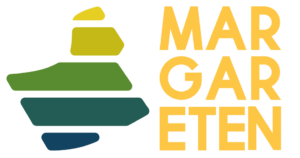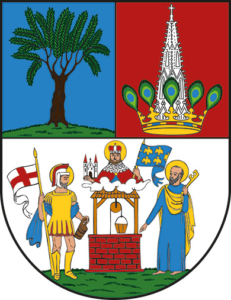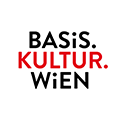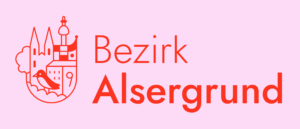EU-Projekt EPESEP
Gender Pay, Gender Show, Gender Pension
EU-Projekt: 2024 – 2026
Das EU-Projekt EPESEP, “Equal Pay, Equal Show, Equal Pension”, zielt darauf ab, das Bewusstsein für sexistische Strukturen im Literaturbetrieb zu schärfen und Maßnahmen zur Verbesserung der Situation von Autorinnen in Österreich, Deutschland, den Niederlanden und Armenien zu entwickeln.
EPESEP thematisiert Einkommens-, Sichtbarkeits- und Pensionsungleichheiten.
EPESEP-News
English version
The Association of Feminist Authors (IG Feministische Autorinnen, ≠igfem) is committed to a feminist agenda in the literary, political and public sphere. We are currently looking for partner organisations with whom we can launch a small-scale European Cooperation Project within the Creative Europe Programme (CREA) and take this goal to an international level.
≠igfem is a non-profit organisation, founded in 2019 and based in Vienna/Austria.
We consider it our mission to
- represent the concerns and interests of feminist authors
- highlight the inequalities that women are facing in the Austrian literary scene by writing (open) letters, articles and reviews or posting social media content
- facilitate the (inter-)national dialogue of female authors by organising writing, reading and networking groups, workshops, readings and so forth.
While our projects so far have mainly been focusing on Austria and Germany, our goal is to support female authors all over Europe. We are therefore searching for like-minded organisations within the EU with whom we can launch a small-scale cooperation project within the Creative Europe Programme (CREA) in 2023.
The gender pay gap in the Austrian cultural sector amounts to approximately 25%. This is due, on the one hand, to unpaid care work and, on the other hand, to the fact that their writing is regarded as inferior and published, rewarded and promoted less frequently than that of male authors. One argument commonly made to justify this is that it is simply the “literary quality” of a text that is being evaluated. This ignores, however, the sexist structures that have shaped and continue to shape our entire society and thus the cultural landscape as well, and from which some groups are benefitting while others are being discriminated against. Literary criticism is a discourse of power that is not only concerned with literary quality but that negotiates values and positions of power. This is evidenced both in quantitative and qualitative terms: Three quarters of the reviews by Austrian male critics deal with the texts of male authors, while for female critics the ratio is far more balanced, with male authors even given a minimal preference of 2%. Additionally, the works written by women are discussed differently by male critics than those written by men. Not only do these reviews focus more often on extra-literary factors, such as the author’s looks or relationship status, but they are also filled with explicitly misogynistic statements that deny female authors the ability to write, portray subjects the subjects of their works as irrelevant and worthless (for male readers) and categorize their texts inferior literary genres. These practices have profound consequences for female authors, whose works are less often published by prestigious publishing houses, awarded prizes or scholarships, and who are generally poorly studied, rarely make it into literary histories and are subsequently often forgotten by the generations to come.
This is why ≠igfem wants to launch a small-scale European Cooperation Project with 3-5 partner organisations and the goal to publish national reports on the reception and economic standing of female authors, to raise public awareness about sexist structures and practices in the literary field and to propose counter measures to improve the situation for female authors throughout the EU. In addition, a reading list, consisting exclusively of the works of women from the countries of all participating organisations, will be prepared and published in order to increase the visibility of feminist and socio-critical authors in particular. The project also aims to promote international collaboration among feminist/literary organisations and to establish a large support network enabling the exchange of experiences and know-how. Would you like to join us? Then do not hesitate to contact us at support@igfem.at – we would love to set up an online-meeting and talk about ideas and possible partnerships!
IG feministische Autorinnen
Gerlinde Hacker
Dorothea Pointner
Website: https://www.igfem.eu/
E-Mail: world@igfem.at


















Die Themenbereiche des EPESEP-Projekts
Näheres zum Projekt unter: igfem.eu/project-epesep
Die EPESEP-Partnerinnen-Organisationen
Das Projekt, das durch das EU-Programm Kreatives Europa gefördert wird, zielt darauf ab, die Sichtbarkeit von Schriftstellerinnen in verschiedenen europäischen Ländern zu fördern und stärken, indem ExpertInnen aus verschiedenen Ländern zusammengebracht werden, um die aktuelle Lage zu diskutieren, Herausforderungen zu identifizieren und Strategien für die weitere Entwicklung und Zusammenarbeit in einem kooperativen und partizipativen Ansatz zu entwickeln.
Österreich: ≠igfem ist der führende Partner des EPESEP-Projekts. Es handelt sich um eine gemeinnützige Organisation, die 2019 gegründet wurde und ihren Sitz in Wien, Österreich hat. Der Name ist eine Abkürzung für Interessensgemeinschaft Feministische Autorinnen. Die Kernmissionen von ≠igfem bestehen darin, die Anliegen weiblicher Schriftstellerinnen zu vertreten, gegen sexistisches Unrecht im literarischen Bereich zu kämpfen und professionelle Schulungen für Schriftstellerinnen anzubieten.
Deutschland: Schamrock ist ein internationales Forum für weibliche Dichterinnen. Es wurde 2009 mit der Absicht gegründet, Dichterinnen zu ermutigen, Lesungen, außergewöhnliche Ideen und frische Darbietungsformen mit kreativer Wut und poetischem Elan zu entwickeln.
Niederlande: Das niederländische Schriftstellerkollektiv Fixdit wurde 2019 gegründet. Sie schreiben Lemmas für Handbücher, geben in einer regelmäßigen Kolumne in der Zeitschrift „Nederlandse Boekengids“ Tipps und produzieren Podcasts. Zudem organisieren sie ein Kanonfestival. Sie haben eine Webseite, einen Newsletter, einen Leseklub und veröffentlichten 2022 ein bemerkenswertes Manifest.
Armenien: Die Today Art Initiative (TAI) wurde 2014 gegründet. Ziel der Organisation ist es, zeitgenössische Kunstaktivitäten zu entwickeln und eine Plattform für experimentelle und innovative Kunstpraktiken und -austausch zu schaffen. TAI bietet Möglichkeiten, gesellschaftliche Themen lokal und international zu reflektieren. Ziel des Austauschs und der Residenzen ist es, den Dialog zwischen Kunstschaffenden auf einem größeren Kontextlevel wie Identität, Gemeinschaft und Nationalität zu schaffen. Durch ökologische Kunstinitiativen möchte TAI das Bewusstsein für Umweltprobleme schärfen und nachhaltige Praktiken fördern. Indem Kunst in den Umweltaktivismus integriert wird, strebt TAI an, Einzelpersonen zu inspirieren, aktiv zu werden und positive Veränderungen in ihren Gemeinschaften herbeizuführen.
English Writing Group
here more Information
https://www.igfem.eu/writing-group
Das EU Projekt “Gender Pay, Gender Show, Gender Pension”
Der Gender Pay Gap beträgt im österreichischen Kulturbetrieb rund 25%, der unbereinigte GAP 49,6%, das bedeutet, dass das Einkommen von Frauen, die einer künstlerischen oder kunstvermittelnden Tätigkeit nachgehen, um ein Viertel bis mehr als die Hälfte unter jenem ihrer männlichen Kollegen liegt.
Dies ist zum einen durch unbezahlte Care-Arbeit und damit verbundene Mehrfachbelastungen, zum anderen aber dadurch bedingt, dass ihre Werke geringer geschätzt und honoriert sowie seltener publiziert und gefördert werden als die von Autoren. Als Argument wird in der Regel vorgebracht, es werde lediglich die „literarische Qualität“ eines Textes beurteilt. Dieses lässt jedoch die sexistischen Strukturen außer Acht, die unsere gesamte Gesellschaft und damit auch die Kulturlandschaft geformt haben und weiterhin prägen und von denen manche Gruppen profitieren, andere jedoch benachteiligt werden.
Literaturkritik ist ein Machtdiskurs, der vom Geschlecht als gesellschaftlicher Leitdifferenz beeinflusst ist und in dem nicht nur literarische Qualität, sondern auch Werte und Machtpositionen verhandelt werden. Dies ist sowohl quantitativ als auch qualitativ belegbar: Drei Viertel der Rezensionen österreichischer Kritiker befassen sich mit den Texten von Autoren, während bei Kritikerinnen ein weit ausgeglicheneres Verhältnis herrscht, Autoren sogar ein minimaler Vorzug von 2% gegeben wird. Gleichsam werden die Werke von Frauen durch Kritiker anders besprochen als jene von Männern. Nicht nur wird der Fokus dabei häufiger auf außerliterarische Faktoren, wie das Aussehen oder den Beziehungsstatus der Autorin, gelegt, die Rezensionen sind auch dezidiert von misogynen Aussagen durchzogen, welche den Verfasserinnen die Fähigkeit zu schreiben absprechen, ihre Texte lächerlich machen oder Gegenstände weiblichen Schreibens als (für Männer) uninteressant und wertlos hinstellen und minder gewerteten Arten und Gattungen von Literatur zuordnen. Diese Praktiken haben weitreichende Folgen für Autorinnen, deren Werke seltener in prestigeträchtigen Verlagen publiziert oder mit Preisen oder Stipendien ausgezeichnet werden und die in der Regel schlechter erforscht werden, seltener Eingang in Literaturgeschichten finden und in der Folge in Vergessenheit geraten.
In diesem Sinne werden wir als IG feministische Autorinnen gemeinsam mit 3 Partnerinnen*organisationen ein kleines Kooperationsprojekt realisieren, in dessen Rahmen länderspezifische Berichte zur Rezeption und ökonomischen Situation von Autorinnen erstellt, die sexistischen Strukturen und Praktiken im Literaturbetrieb an die Öffentlichkeit getragen und Vorschläge für Maßnahmen zur EU-weiten Verbesserung der Lage von Autorinnen erarbeitet werden. Des weiteren soll eine Leseliste, bestehend ausschließlich aus den Werken von Frauen, für die Länder aller teilnehmenden Organisationen zusammengestellt und veröffentlicht werden, um insbesondere feministischen, sprach- und gesellschaftskritischen Autorinnen zu mehr Sichtbarkeit zu verhelfen. Ziel des Projekts ist es darüber hinaus, die internationale Zusammenarbeit feministischer/literarischer Organisationen zu fördern und ein weites Support-Netzwerk zum Austausch von Erfahrungen und Expertise aufzubauen. Wir freuen uns über Anfragen an support@igfem.at sowie Terminvorschläge für online-Treffen, um über eine mögliche Zusammenarbeit oder Vorschläge bzg. der Umsetzung des Projekts zu sprechen. Mehr Informationen zur ≠igfem und unseren Angeboten sind auf unserer Website zu finden: https://www.igfem.at.
IG feministische Autorinnen
Gerlinde Hacker
Dorothea Pointner
Website: www.igfem.at
E-Mail: support@igfem.at
Frühjahr 2023: Ausgangssituation und Hintergründe:
Die IG Feministische Autorinnen (≠igfem) engagiert sich für eine feministische Agenda in Literatur, Politik und Öffentlichkeit. Wir sind auf der Suche nach Kooperationspartnerschaften, die zur Realisierung dieses Ziels auf EU-Ebene im Rahmen des Creative Europe Programme (CREA) beitragen wollen.
≠igfem ist ein 2019 gegründeter gemeinnütziger Verein mit Sitz in Wien. Als Interessensgemeinschaft von und für feministische(n) und gesellschaftskritische(n) Autorinnen sehen wir unsere Aufgabe darin, die im Literaturbetrieb (re-)produzierten, ungleichen Bedingungen, unter denen Frauen schreiben, aufzuzeigen und aktiv Gegenmaßnahmen zu setzen. Zu diesem Zweck betreiben wir feministische Öffentlichkeitsarbeit und fördern den österreichweiten und internationalen Austausch von Autorinnen im Rahmen von Schreib-, Lektüre- und Vernetzungsgruppen, Workshops, Lesungen u.v.m. Bislang war unser Wirkungsbereich auf Österreich und Deutschland beschränkt. Jedoch sind Maßnahmen zur Gleichstellung der Geschlechter (im Literaturbetrieb und darüber hinaus) auch auf EU-Ebene dringend notwendig. Wir suchen daher nach gleichgesinnten Organisationen, mit denen wir gemeinsam Projekte realisieren und 2024 im Rahmen des Creative Europe-Programms um Förderungen für ein kleines Kooperationsprojekt einreichen können.